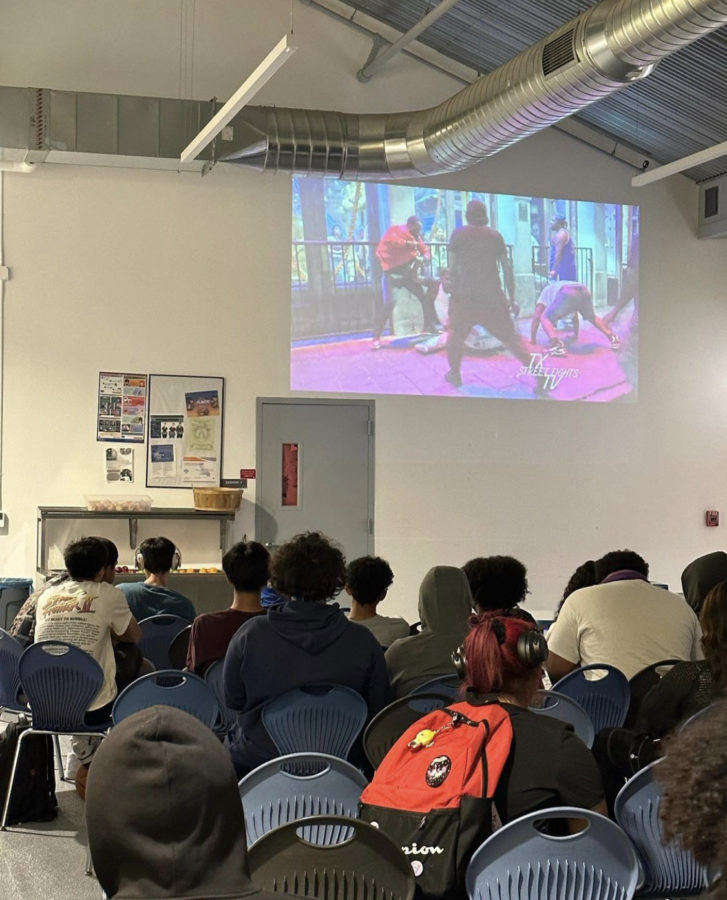Teens talk about ‘On the Phone, Alone’
How do phones and social media affect teen mental health?
May 17, 2022
Earlier this month, the New York Times published an article titled “On the phone, alone” that lays much of the blame for this country’s current mental health crisis among teen-agers on the loneliness and “aloneness” that smartphones and social media have created in the first generation to have grown up with them.
The Latitude Legacy asked a group of 10th-graders to read the article and comment on it. We think their responses are enlightening. We have honored their request for anonymity.
Student No. 1:
Many studies have suggested that social media and cell phone usage are having detrimental effects on teen mental health and social interaction. I agree with this for the most part. New technology has encouraged online interaction over in-person interaction, and it encourages screen time over face-to-face time. Since we are very social animals, having less in-person interaction can lead, as studies have suggested, to depression and thoughts of self-harm.
Where I disagree is that a lot of these articles don’t talk about the fact that this is probably preventable. These articles just tell us about all the negative effects of technology, not any of the positive effects or what can be done to help overcome the negative effects.
I think that social media’s power has to do with how easy life is getting. I think that a lot of people, especially teenagers, are getting used to doing what they want and whenever they want. I think that people are learning to prioritize what they want over what they might need. This is, in my opinion, the danger of social media. You basically get addicted, and you can’t see why it’s bad for you because you like it so much. … I almost never go on Instagram, Tik Tok, Snapchat, and those kinds of social media, and it has led me to realize how much of an effect they have on people. I understand that widespread social media can be useful, for business advertisement and the like, but it is creating a weird social norm.
Whenever I hang out with my friends, or see people hanging out with their friends, they have to take pictures and post them. They would rather share their life with their followers than the people standing right next to them. Of course, not everyone is like this and not everyone does it to this degree, but it is undeniably becoming more and more common.
I think that social media has shown a lot about our society and how much we value “popularity” and “fame.” Social media feels like candy, and teenagers have shown that they can’t resist.
Student No. 2:
I often find myself wishing that I could go back in time and live when my parents were growing up. No cell phones, just the phones that hang on the wall. No way of communicating by texting or social media apps, just hand-written letters and voice calls. I think there is something super special about only being able to talk to friends and family when you are with them in person. … When we are on our phones while we are with the people we love, we aren’t appreciating their presence.
I also suspect that Covid has played a big role as well, because it was physically unsafe to be with people so the only way to stay connected and relieve the feeling of isolation was to talk on the phone. This is definitely an upside to having my own cellphone and technology and the isolation of the pandemic made me appreciate the in-person visits even more.
I do believe that phones take a major toll on teen mental health and have harmed our social and emotional skills. It devastates me to think about the cyberbullying kids are taking part in and/or facing because I don’t believe that they would ever say such harmful things to people’s faces. Phones give people a mask to hide behind and a feeling of anonymity and I think that can be super destructive for themselves and others.
In my opinion social media and cell phones have good and bad sides. I know that some people find connection and passion over social media and others compare themselves and bring themselves down when they spend time on social media. When I talk to my parents about how I am feeling or what I am thinking about a lot of the time they say, “I don’t know what it is like for you to be growing up now because I didn’t have phones and social media when I was younger.” Sometimes I just wish for a technology-free experience, but I wonder if that is even possible today.
Student No. 3:
After reading The New York Times article, I feel really sad for our generation. … SOmetimes I feel like social media hasn’t impacted my life very much, but I can’t say that for sure. I first got a phone in sixth grade, and I don’t remember what it was like without it. Maybe I did spend more time with friends actually talking face-to-face and maybe I got more sleep and had more time outside. I also just see these things as growing up.
When I first got a phone, my parents were strict about how much time I was spending on it and if I could have social media or not. This actually made everything a little more challenging for me. This made it hard for me to reach out and hang out with other people. I wasn’t invited or included in their plans because I didn’t have that means of communication. When I got Instagram, all I saw was posts of my friends and other people hanging out, and it made me feel excluded and sad. So is the whole point of posting this stuff to basically show off? In a way I guess you could say it just makes people feel better about themselves, not necessarily knowing that they are hurting others.
In the last two years with Covid, phones and social media were the only way we could communicate with friends. If you didn’t reach out, the only people you would really talk to would be your family. There was definitely a lack of connection and a building loneliness that I only really realized when I got back to school in person. That personal connection is so important, and I feel so much better when I’m actually spending time with my friends. They always make me laugh and smile which is so important.
Student No. 4:
The pandemic has exposed many of the country’s flaws and instabilities, and one of the most detrimental and recently obvious ones is the deteriorating mental health of American teens. The New York Times and the Atlantic publish articles blaming this deterioration on the widespread usage of cell phones and technology, but never explain how to “solve” this problem, if there is indeed a solution.
The correlations between cell phone usage and mental health are clear: Social media and consistent exposure to the internet is not good for developing teens. If anything, it is interfering with healthy growth and development and creates additional insecurities and social problems. However, this doesn’t seem to be enough reason to stop children and young adults from using social media and cell phones… The desire and need to be “normal” and to do what everyone else is doing is strong enough to keep us coming back to something that we know is harmful.
And nobody ever points out how it might be a much larger issue, and the blame falls right back onto children. … I don’t believe that this is right, and I believe that if adults are in a position to point out this issue, then they are in a position to help solve it.
Student No. 5:
Are teens experiencing considerably more mental stress than any other previous group of adolescents? According to the HRSA’s Maternal and Child Health NSCH Data Brief, teen depression and severe mental health episodes have been on the rise by 60% from 2003-18, and it’s still a major source of anxiety for this generation’s parents and guardians. I believe that youth are becoming more demoralized by the minute.
These increases are blamed on cell phone isolation, according to a New York Times report. Over-exposure to mobile phone usage has resulted in a continuing pattern of pessimism manifested as depression, anxiety and loneliness. These assumptions, in my opinion, are incorrect. The pressures of excellence determine whether or not a teen in this generation is recognized as a beneficial part of society. The majority of these criteria are unquestionably set by influencers and mediators of our daily social media intake, but I believe the biggest and most impactive influence remains to be found.
Student No. 6:
I think there is a problem with teenage mental health issues facing my generation. First, teen lives can be stressful because some have many responsibilities like school, maybe work, family and other things so they often have busy schedules. I think school has the largest impact because teens face many different challenges at school. They might be overloaded by homework, tests and advanced classes that causes much stress. I’ve become sleep-deprived because of school work. Sleep is crucial for teens for their development. After not getting enough sleep, I feel less motivated, more anxious, and I do consistently struggle with these problems.
Additionally, I think a lot of teen students don’t like going to school because they might feel like they don’t fit in socially or they might be getting bullied or are getting pressured by other students. Or maybe they don’t care about their classes and think school is a waste of time. I think there are many pressures that teens have faced for a long time that might cause mental health issues like depression, anxiety, drug problems, or sleeping disorders which are all common mental health problems for teens.











